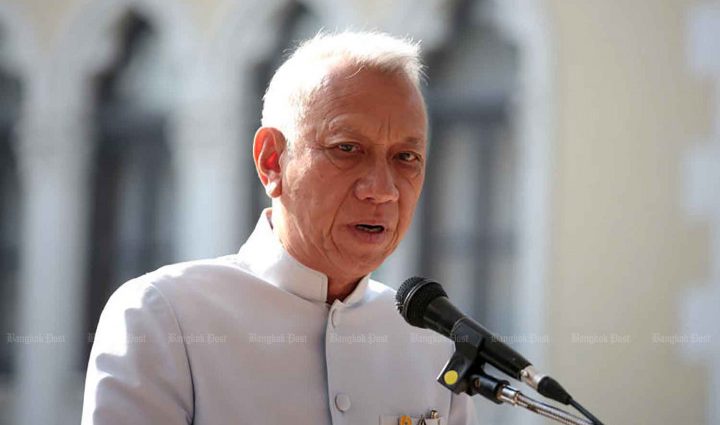Decision on B400 rise expected in April
PUBLISHED : 1 Feb 2024 at 06:27

The tripartite wage committee is expected to consider another daily minimum wage increase in April, with the new rates likely to rise to 400 baht in some provinces.
This comes as Labour Minister Phiphat Ratchakitprakarn said that Pairoj Chotikasathien, permanent secretary for labour, who serves as the committee’s chairman, has appointed a subcommittee to review a minimum wage calculation formula and study the possibility of increasing rates for some provinces and career types.
“The study’s results will be presented to the committee,” Mr Phiphat said on Tuesday. “I am confident there will be good news in April. Some provinces and career types will likely see a daily wage increase of 400 baht.”
Mr Pairoj said that the subpanel will study economic and social circumstances, the current wage rates, standards of living and employee expenses to produce a new formula for calculating the daily minimum wage.
He said the subpanel will hold its first meeting this week before presenting the findings to the main committee by the end of this month.
The 17-member subpanel is chaired by the deputy permanent secretary for labour, and it comprises five employer and five employee representatives plus seven government officials.
The daily minimum wage for Thai workers nationwide rose on Jan 1, with the new rates varying between provinces, ranging from 330 to 370 baht, according to the tripartite wage committee.
Before Jan 1, the rates were between 328 and 354 baht. The increases range from 2 to 16 baht, or an average of 2.37%.
Mr Phiphat previously said a wage review is typically based on the economic growth rate, inflation, and the cost of living over the past five years.
However, he noted the wage rate calculation was unfair to workers because it included the low economic growth rate during the Covid-19 pandemic in 2020-2021. He said the economic situation during the outbreak should not be used in the calculation.
Kiriya Kulkolkarn, a lecturer at Thammasat University’s economics faculty, echoed this view.
She said the calculation should have been based on inflation from July 2022 until September 2023, with an average increase of 3.2%. She said this formula could be applied to every province.
The current rate falls short of the 400 baht which the Pheu Thai Party promised during its election campaign earlier this year, and which rattled businesses which feared a rate that high could make the country less competitive.
Prime Minister Srettha Thavisin previously said he would seek a revision of the committee’s decision to raise the minimum wage by 2 to 16 baht across the country, calling the increases too low.

